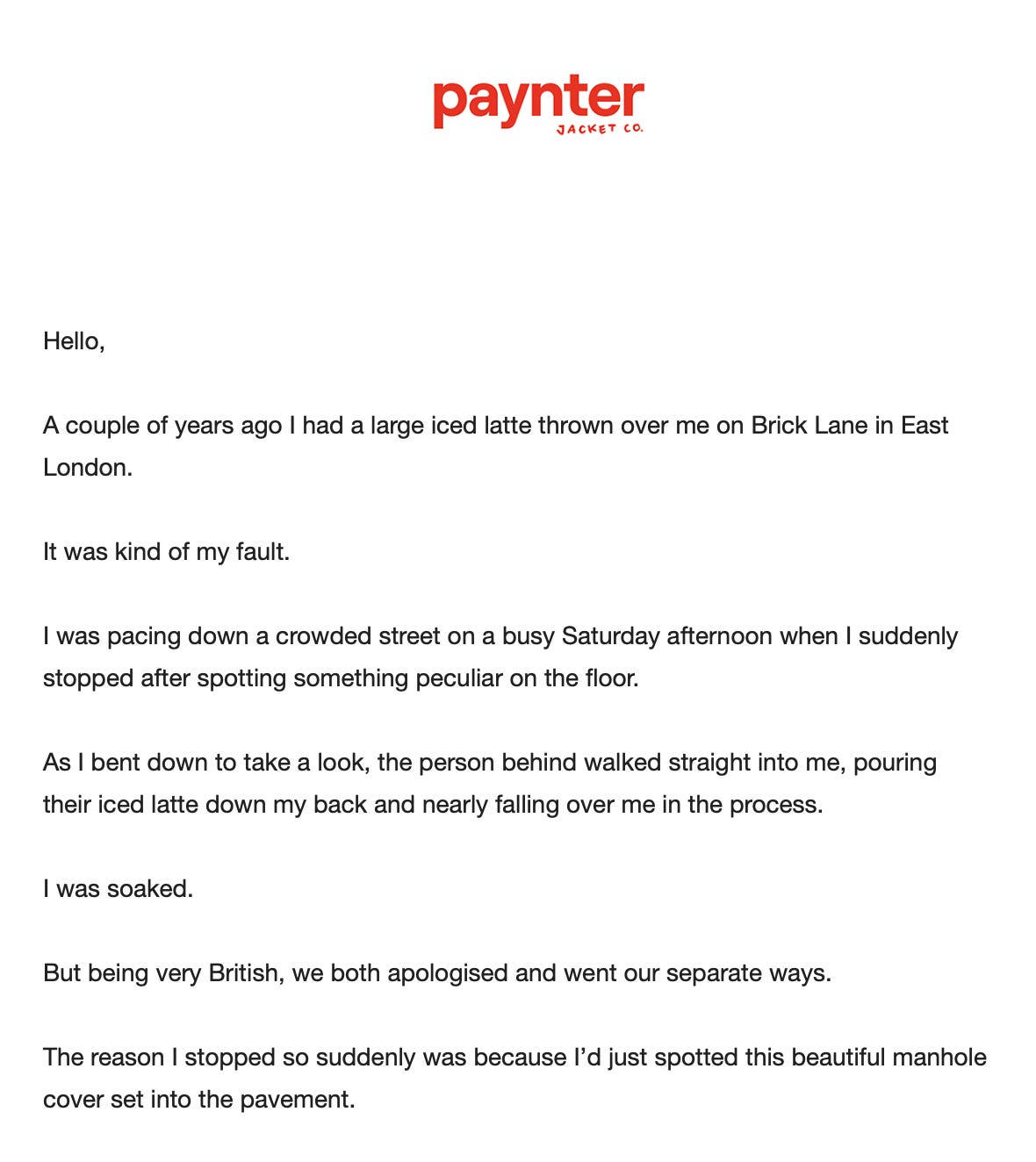I haven’t felt proud of my writing for a few months now.
This is probably an unwise assertion to make, especially in front of new subscribers. But there’s a positive lesson in it, I think. And I’m going to use this post to try and tease it out.
My early ambitions for Pass It On revolved around utility. I wanted to share practical, actionable knowledge for tech and non-profit readers. Over time, that ambition shifted. I became less concerned with writing useful posts and more motivated by writing interesting ones.
Like
creator Mario Gabriele, I wasn’t prepared for my expectations to scale with my experience. I assumed that the more posts I published, the faster I would get as a function of refining my writing skills. Instead, the opposite happened: the more proficient I became, the more I began to demand of myself.Interesting is, for me at least, much more demanding than useful. The mind must be free yet focused. Receptive to signals. Capable of making unexpected connections. Useful and interesting aren’t mutually exclusive, of course. But I’ve found the artificial dichotomy helpful for describing an abstract goal I’m striving towards.
Interestingness is in itself interesting. I’ve become a bit obsessed with trying to understand it. What are its essential properties? How do I cultivate and nurture it over time?
It turns out I’m not alone. Last year, the brilliant strategist and former Q&A guest Russell Davies published Do Interesting: Notice. Collect. Share. It’s a delightful little book, full of practical tips.
One of my favourites was the Spark File. Russell borrowed it from Stephen Johnson, the popular science writer and author of Where Good Ideas Come From.
A Spark File is a doc you fill with snippets of Interestingness. Or hunches, as Johnson calls them. These hunches could be sentence fragments, questions, quotations—anything, really. The point is to gather all of them in one central place, without caring how they’re organised, and then read the entire doc from top to bottom every few months.
According to Johnson, the re-reading part is where the magic happens. You rediscover old thoughts from years ago that made no sense at the time, and that suddenly take on new significance because something in you or the world changed. Johnson says it’s like “brainstorming with past versions of yourself.” He’s uncovered multiple book ideas ideas this way.
I’ve found the ultimate home for my Spark File in Sublime, the brainchild of another former Pass It On guest, Sari Azout.
It’s hard to sum up Sublime in a single sentence. I’d describe it as a soulful, communal digital second brain. Sari has called it the place for “everything that makes you go ‘whoa’.” Which is not only the nearest-to-perfect definition of Interestingness I’ve found but also my new criterion for anything worth collecting. I no longer worry about how or where I’m categorising my spontaneous thoughts and references. If I sense a little ‘whoa’, in it goes. Then every week or so, Sublime sends me a ‘moment to remember’ email featuring one of my hunches to rekindle my own curiosity.
Gathering Interestingness is one thing. Making Interestingness is another. The nurturing process takes more patience than I’m comfortable with. Still, I’m trying to enjoy the journey.
Have you ever tuned into a specific idea or concept for the first time, only to start spotting it everywhere? Chances are, you’re onto something interesting:
“As I read, as I do my work, as I go about my days, the word ekphrasis continues to come up. I read it everywhere: in edits on a piece I’ve written about an artist’s documentaries, in Instagram captions, on podcasts. I’ve certainly encountered it before, probably in college, but I haven’t encountered it since—this says something, maybe, about food writing—and so it seems like my research is telling me something, like I’m onto something, like these threads I’m grasping about the everyday in the endless work of a writing life (of an artist’s life) are leading to something.”
(Yes, this quote was in my Spark File.)
What Alicia’s talking about here is pattern recognition. It opens you up to the world in unexpected ways.
Here’s an example.
A couple of years ago, the co-founder of Paynter Jacket Co. Becky Okell noticed this beautiful manhole while walking down London’s Brick Lane:
She’d walked down the street tons of times and never noticed it. But once she did, she started spotting manholes everywhere. And began taking photographs of them from all around the world:
After two years of collecting, Becky came up with the idea to make a manhole-inspired button for Paynter’s latest jacket release:
She then shared this story in an email to Paynter’s newsletter subscribers, which is how I heard about it:
Notice. Collect. Share.
Now, I’m off on summer holiday. In search of some new Interestingness of my own.
See you in a few weeks,
Lauren








Thank you so much for sharing very thoughtful and inspiring
or how to nurture your ability to notice. love this one Lauren.